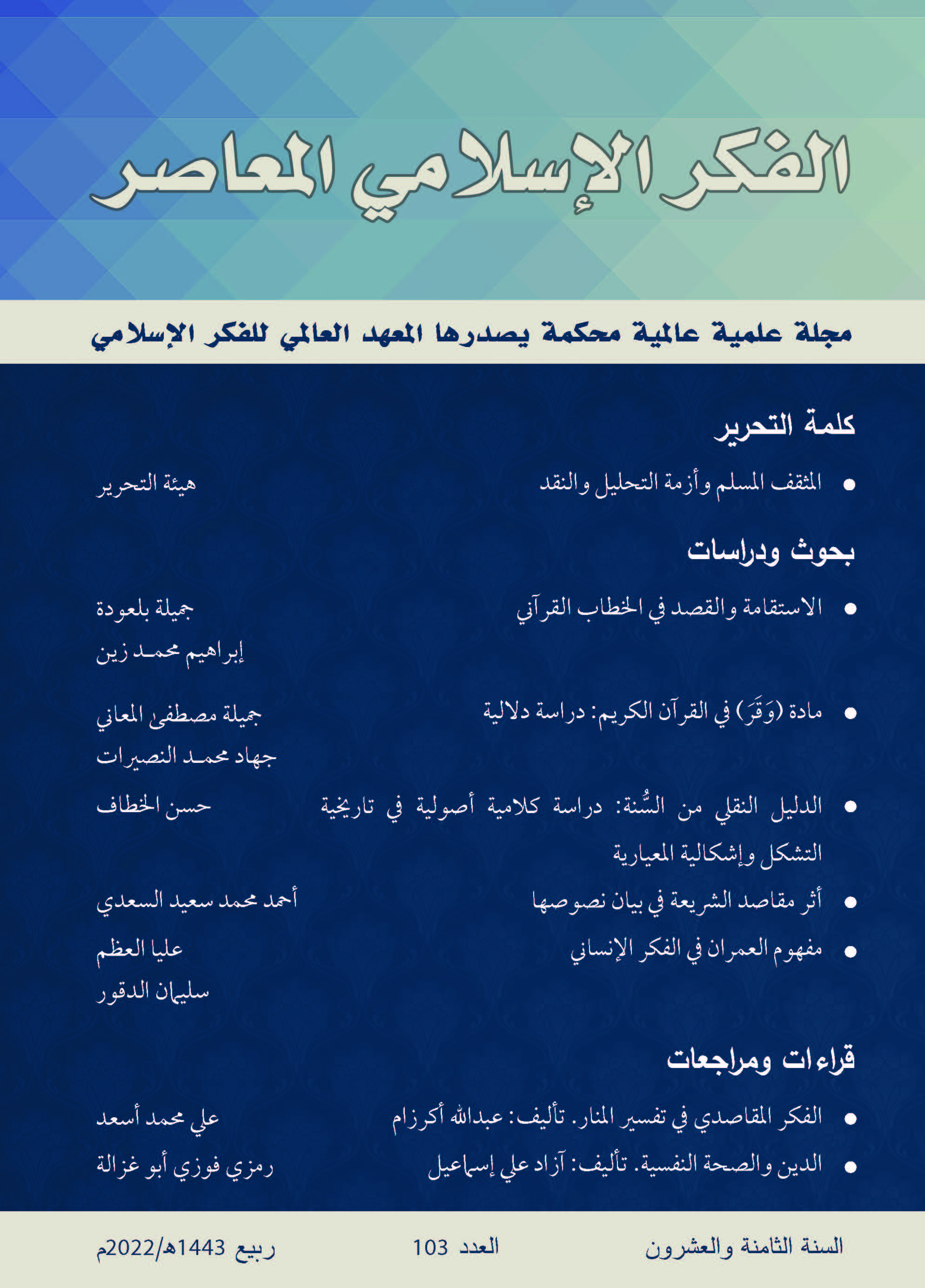Abstract
This study is an analytical reading of the semantic interrelation between integrity (istiqāmah) and intent (qaṣd) in the Qur’anic discourse. Integrity assumes a central value as a pivotal concept in the moral system, playing an effective role in shaping life at conceptual and behavioral levels. Intent intersects with integrity in that it is an essential element in the semantic structure of this concept; for God Almighty describes human activity as intentional movement framed within the boundaries of the straight path. Opting for an approach of induction and semantic analysis, the authors seek to define the semantic relationship between intent and integrity, and monitor the nature of this interrelation in light of the relevant Qur’anic texts, depending on contextual studies and tracing the forms of this interrelation. The importance of this study derives from its vital topic, connecting it with the maqāṣid al-istikhlāf, purposes of human vicegerency, as well as from demarcating the objective conditions of a moral act. Throughout this, the authors monitor the semantic field of intent and integrity and analyze the data of the interrelation between them, given their close connection with moral theory, and their role in controlling emotional and human value content.





